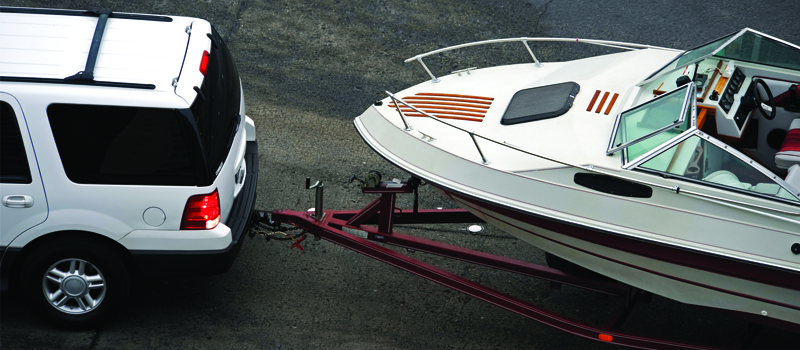Preparing Your Boat for a Hurricane
Preparing Your Boat for a Hurricane

Preparing Your Boat for a Hurricane
If you own a boat in certain parts of the United States, there's a good chance that you'll have to prep it for a hurricane at some point during your boat ownership. High winds, heavy rains and storm surges can all take their toll on boats and the marinas where they're stored, making proper preparation all the more important when inclement weather is imminent.
In this post, we'll detail the steps you should take to prepare your boat for an incoming hurricane.
Preparing Your Boat for a Hurricane: A Step-By-Step Guide
When it comes to preparing for a hurricane, it's always best to hope for the best but prepare for the worst. Here's how to prep your boat:
Relocate It (If You Can)
If a tropical storm has formed in your area and there's a risk it could become a hurricane, proactively look to see if you can take your boat out of the water and store it in a safe and secure location. This tends to be the best option. If you can't take it out of the water, try moving it to another location on the water that won't be as impacted by the storm.
If neither of these are options, see if you can take your boat to a nearby hurricane hole. Hurricane holes are more sheltered locations, like coves, bays and canals that offer more protection during inclement weather.
Secure It
If you can't get your boat out of the storm's path, then make sure you go through the extra effort to secure it in its marina slip. Double or even triple the number of lines you tie it to the dock with, and make sure you're using stronger lines than normal. Additionally, be sure you're using an adequate number of fenders to prevent the boat from hitting the dock. If your boat is in a lift, raise it as high as possible.
Prepare for Flooding
Be sure to prep your boat's interior and prepare for flooding. Some of the ways you'll want to protect the boat's interior include:
- Sealing the hatches, doors and windows
- Removing any loose items that can be damaged by water
- Protecting electronics and electrical systems
- Checking any bilge pumps to ensure they work properly
- Plugging the engine exhaust so water doesn't enter the engine compartment
- Removing drain plugs
Remove Important Documents and Belongings
Finally, you'll want to remove any important documents and belongings from your boat in the event of a worst-case scenario. Remove documents like your boat's registration, insurance documents and more. You might also consider taking photos of your boat just in case there's damage and you need to file an insurance claim.
